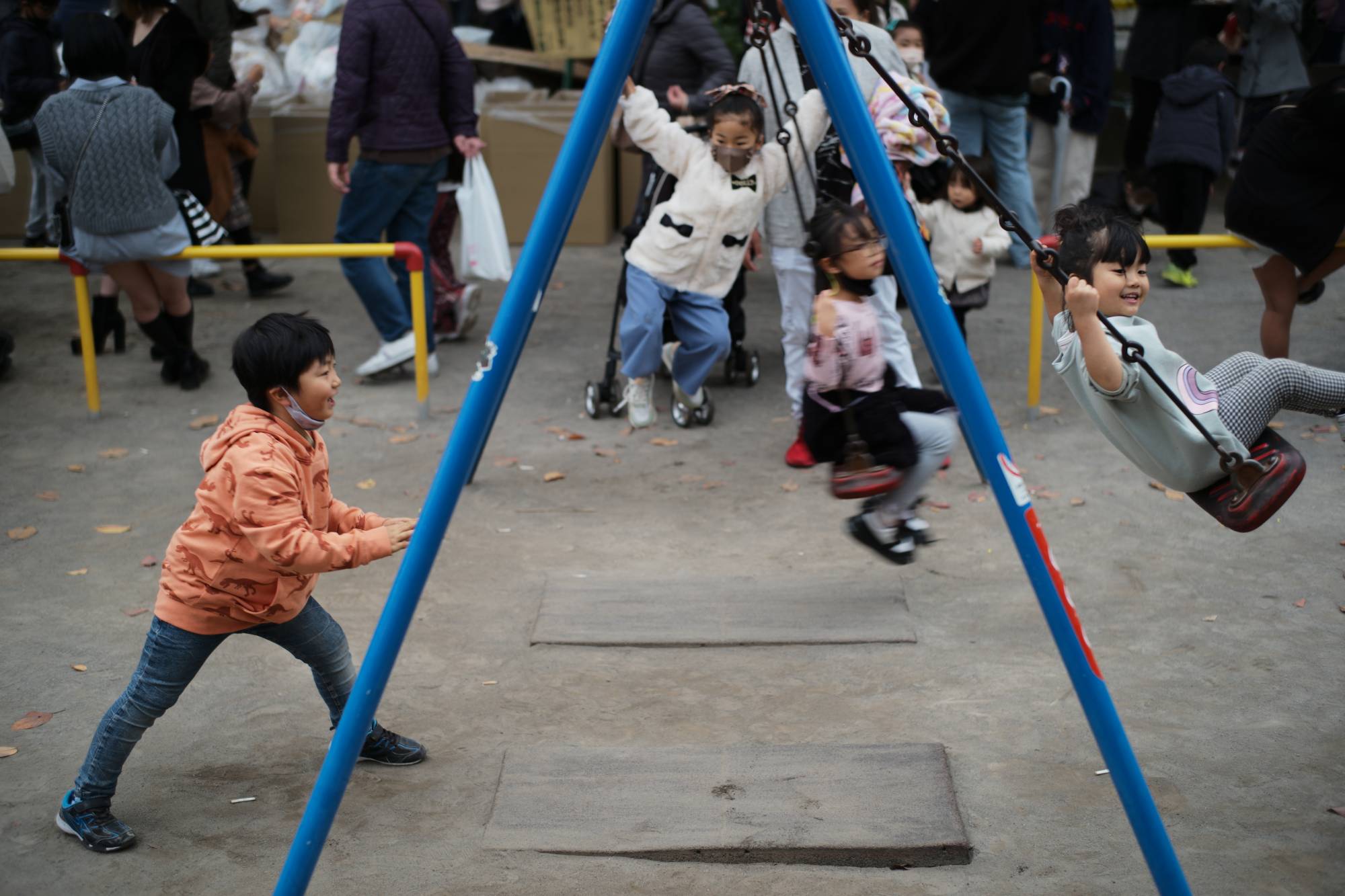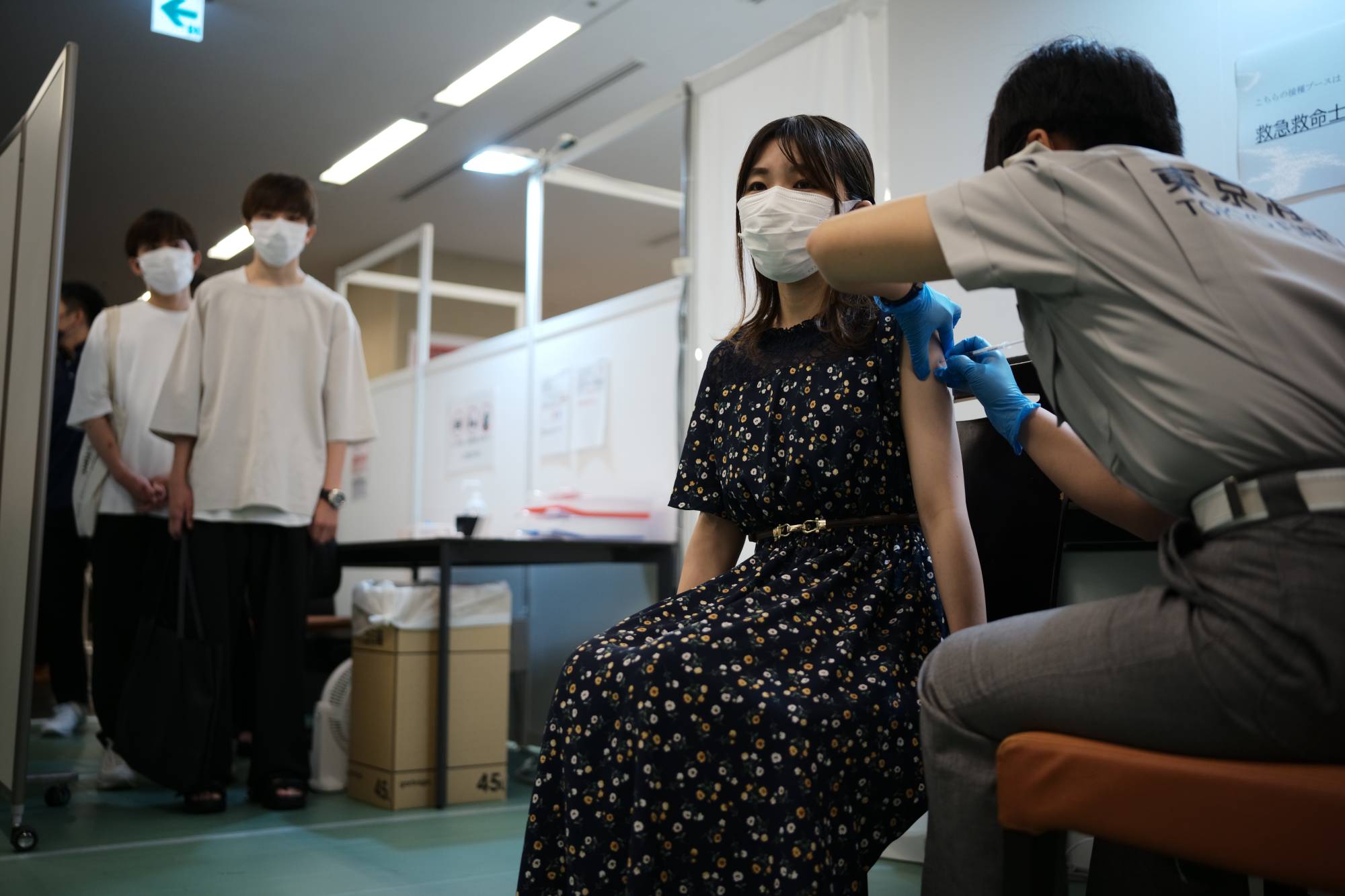After months of toil and criticism, Japan’s once-sluggish vaccine campaign has reached a turning point as a growing majority of the population becomes inoculated and the country prepares to roll out booster shots in December.
What remains is to inoculate children ages 11 and younger, and to begin administering booster shots to medical personnel, the elderly and those with compromised immune systems.
The country has gone full circle as it enters the final stages of its initial rollout of the first and second doses of the vaccine, while simultaneously gearing up to begin distributing the third.
The former seemed to encounter problems every step of the way — problems that experts say could re-emerge if the central government doesn’t shift course in time and improve or even overhaul its system.
But there’s no indication such changes will be made, said Tetsuo Nakayama, a virologist at the Kitasato University Graduate School of Infection Control Sciences and a board member of the Japanese Society for Vaccinology.
“If the central government doesn’t clarify what the plan is after booster shots are distributed nationwide, the burden of responsibility will be placed on regional municipalities,” he said. “Which is what played a large role in the confusion and delays we saw earlier this year.”
As of Friday, 76.5% of the population in Japan has received both doses. Prime Minister Fumio Kishida pledged in September that all willing recipients will be fully inoculated by the end of November.
Asked Monday whether the country had achieved the goal, Chief Cabinet Secretary Hirokazu Matsuno deflected the question.
“I have been told that regional governments say they have completed the process for the most part,” he told reporters Monday morning.
Booster shots will be offered eight months after the second does so, unlike the first and second doses, the schedule is clearer, Matsuno said.
Japan’s vaccine program saw a sluggish start after it began with medical personnel in February this year, followed by elderly residents age 65 and older the following month. The age range gradually widened over the subsequent six months — the first few months of which saw Japan with the lowest vaccination rate among industrialized nations.
The country partially redeemed itself earlier in November when it temporarily surpassed Canada to achieve the highest inoculation rate among Group of Seven nations. Though Canada has reclaimed that position, Japan remains near the top of the list.
The country was already at a disadvantage because of its inability to produce vaccines domestically, but that was compounded by delays and disruptions caused by a series of mistakes and miscalculations.
Among the blunders were thousands of vials left unrefrigerated, forgetful or occasionally opportunistic individuals getting extra doses and several cases where syringes contained foreign contaminants or saline solution when believed to be the real vaccine. More systemic issues include government websites crashing under an onslaught of users looking to secure an appointment, as well as vaccine shipment inequities arising between prefectures due to difference in population size and budgets.



Many of those same prefectures are now making their own preparations by revamping the systems that caused the initial stumbles.
“Confusion will arise if the supply chain isn’t stable,” said Akita Gov. Norihisa Satake. “Besides staffing problems, converting venues into vaccine sites will cause issues on the ground.”
Nagoya decided that tickets to make an appointment will be distributed incrementally, rather than all at once, which is what caused a system crash earlier this year. Kobe will expand its vaccination sites while the capital of Hyogo intends to notify residents of their automatically scheduled appointments, rather than allow them to decide the date, time and location.
Still, booster shots carry heavy implications for all the protection they may offer, namely the transient nature of COVID-19 antibodies.
The central government decided that booster shots should be taken eight months after an individual has received their second dose, but that interval could be shortened to six months depending on the local situation.
A decline in antibodies doesn’t necessarily imply a weaker immunity to COVID-19, Nakayama said, adding that, though it’s most likely safe, there’s still little research into the risks of administering booster shots to young children.
“There needs to be a discussion over who needs to get a booster shot and why,” he said. “The real issue is whether current vaccines will sufficiently protect against new variants.”



Japan is working to procure booster shots for all people 18 and older.
Earlier this month, Kishida announced a bundle of policies that included, among other things, plans to administer booster shots to medical personnel in December and vaccinate children between ages 5 and 11.
Children 12 and older are currently eligible to get vaccinated but availability and safety concerns remain issues for many parents.
Japan has yet to approve booster shots for people between 12 and 17 years of age due to a lack of research and data, but older people who have received both initial doses of the Pfizer vaccine will become eligible in January after medical personnel and health care workers.
The health ministry plans to discuss approval of Moderna Inc.’s booster shots in late December, with hopes to begin administering them in February.
Japan has secured 120 million doses from Pfizer and 50 million booster shots from Moderna for the new year. The country is looking to secure 150 million doses of a vaccine by U.S. pharmaceutical firm Novavax Inc. by early 2022.
The introduction of a so-called vaccine-test package by next March could help Japan begin to rebuild its economy. Perhaps more importantly, the package could incentivize those who remain hesitant of the vaccine to get their shots.
Earlier this year, the proliferation of the delta variant — which is thought to be twice as contagious as the original strain of the coronavirus — wreaked havoc in countries around the world.
In Japan, it pushed the fifth wave of the pandemic to unprecedented heights, triggering a surge in patients that overwhelmed hospitals before spilling into temporary medical facilities and eventually into homes, where many were asked to isolate and await treatment.
“Booster shots don’t mean other pandemic countermeasures can be abandoned,” Nakayama said. “Elderly folks, people with compromised immune systems and other vulnerable individuals should receive a booster shot but, in the meantime, the pandemic will continue for the time being and precautions should be taken accordingly.”
In a time of both misinformation and too much information, quality journalism is more crucial than ever.
By subscribing, you can help us get the story right.
SUBSCRIBE NOW


